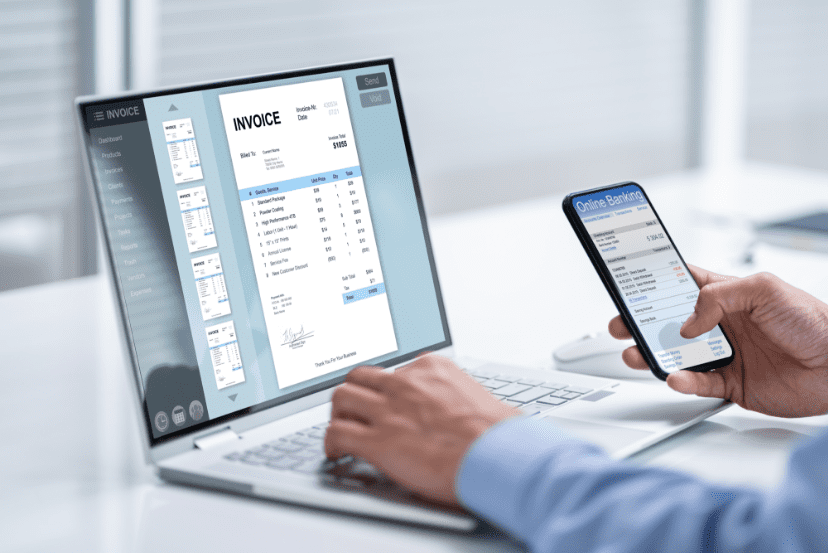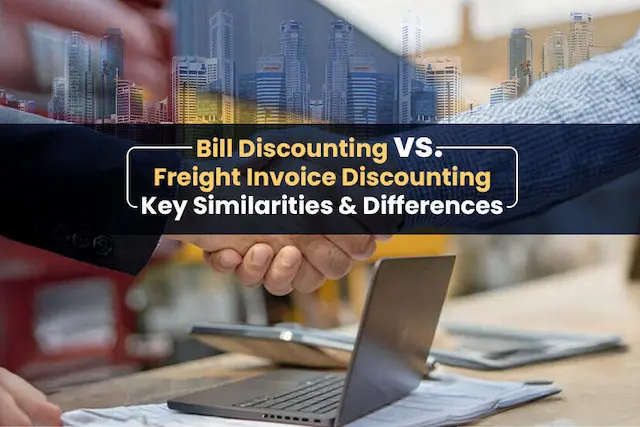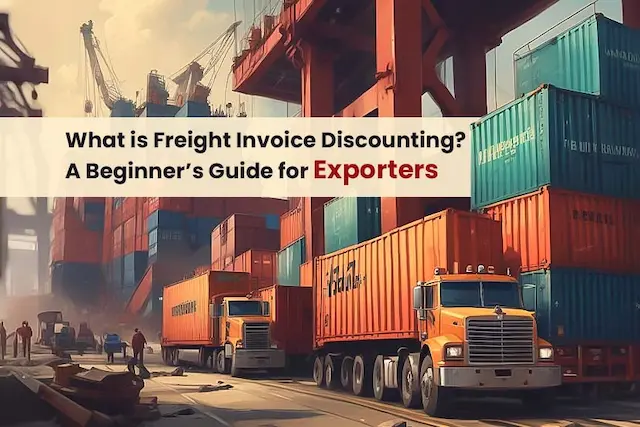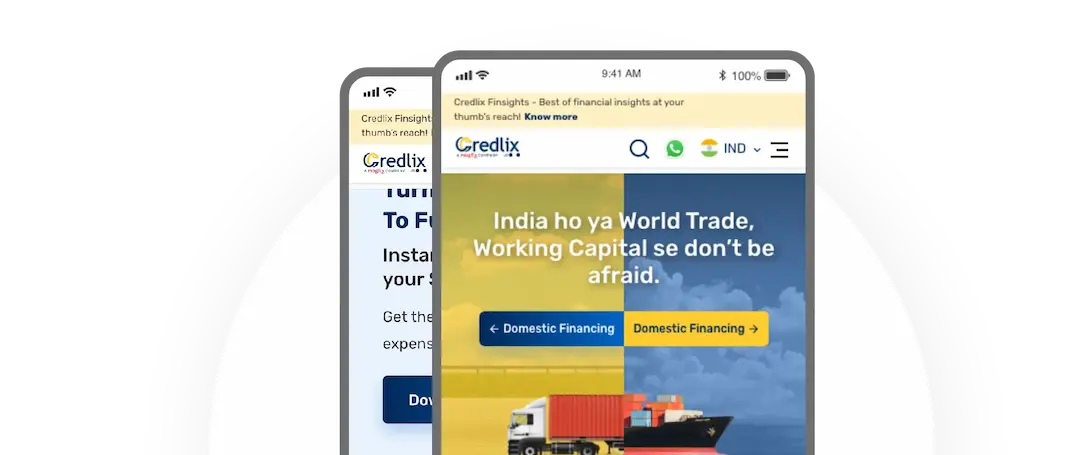Being good with money is key in today’s busy business world. It helps a business stay afloat and grow. Small and medium-sized businesses (SMEs) often struggle to keep cash rolling in, mainly when waiting on customers to pay their bills. Two handy fixes for this issue are finance and invoice factoring. They both help to keep the cash flowing, but they work in different ways and each has its own pros and cons. In this post, we’re going to dive into the differences between finance and invoice factoring, giving you the upsides and downsides of each to help you decide what’s best for your business.
Understanding Finance
Finance is a big term that covers all the ways to get money for business needs. This includes things like bank loans, lines of credit, and other ways of borrowing. Here are some typical types of finance businesses use:
1. Bank Loans
Bank loans are a go-to for many businesses. It’s like borrowing a big chunk of change from a bank and paying it back over time with a little extra called interest. The interest rate and payback time are usually set in stone, so you know what to expect.
Advantages:
- Expectations: You know what your interest and payments will be, so you can plan ahead.
- Big Bucks: Banks can lend a lot of money for big business ventures.
Disadvantages:
- Tough Call: Banks can be picky and want to see good credit and collateral.
- Long Process: Getting a loan can take time and be a bit complicated.
2. Lines of Credit
A line of credit is a flexible way to borrow money. You can borrow up to a set amount, and you only pay interest on the money you actually borrow – not on the entire credit limit.
Advantages:
- Flexibility: You can borrow money when you need it, which helps manage cash flow ups and downs.
- Cost-Efficient: You only pay interest on the money you borrow.
Disadvantages:
- Changing Rates: Interest rates can change, making costs unpredictable.
- Renewal Fuss: Lines of credit may need to be renewed from time to time, which means more credit checks.
Understanding Invoice Factoring
It’s a business deal where a business sells its unpaid bills to another party (called a factor) at a lower cost. The factor then gets the payment directly from the customers of the business. This way, the business gets money right away to fund its needs. So, here is how invoice factoring works sequentially:
- Firstly, the business gives an invoice to its customer for services or goods offered.
- The business then sells this invoice to a factoring company at a reduced price.
- The factoring company gives the business cash upfront, usually 70-90% of the invoice’s value.
- The factor then gets the invoice’s full payment from the customer.
- When the customer pays, the factor takes off its charges and gives the leftover money back to the business.
Finance vs. Invoice Factoring: Key Differences
Let’s see some core differences between traditional finance like loans and invoice factoring.
1. Debt Ownership
In loans, the business still owns its unpaid bills and takes care of collecting payments. In contrast, with invoice factoring, the factor owns the bills and handles the collection.
2. Application
Applying for loans involves intensive checks, property valuation, and thorough financial inspection. This process can run through weeks or even months. In comparison, an invoice factoring application evaluates the customer’s credit score and is usually quicker.
3. Funding Speed
Loans can take weeks or months for approval and money disbursement. But invoice factoring offers quick money, commonly within 24-48 hours of selling the invoice.
4. Credit Score
Regular loans can impact the business’s credit score as these are reported to credit agencies. But invoice factoring doesn’t affect the business’s credit score because it’s not a loan but an assessment of customers’ credit score.
5. Cost
The major expense of loans is the interest on the borrowed money. But the cost of invoice factoring includes a discount rate (mostly 1-5% of the invoice value) and additional charges by the factor. Even though this might seem expensive, immediate cash and easy approval can balance out the extra cost.
Finance and Invoice Factoring: Pros and Cons
Finance
Pros
- Big Money Access: Bank loans and such finance options give you access to hefty sums, perfect for major business expenses.
- Set Payback Terms: You can plan and budget because the payback schedule is laid out clearly.
- Tax-Cuts on Interest: The interest on loans can often reduce your tax, bringing down the total cost of the loan.
Cons
- Tough Approval Rules: A high credit score and collateral might be hurdles for some businesses in getting approval.
- Long Approval Time: The whole process of applying and getting approval could eat up a lot of time.
- Debt Increases: The more you borrow, the higher your business debt, possibly affecting your credit rating.
Invoice Factoring
Pros
- Instant Cash: This gives you quick access to money, boosting liquidity and helping you meet urgent financial needs.
- Simple Approval: This process is easier to get through. It depends on your customers’ creditworthiness, not your business.
- No Extra Debts: As this is not a loan, it doesn’t add to your business debt or affect your credit rating.
Cons
- Costlier: The fees and discount rates for factoring might be more than traditional loan interest rates. Image
- Risk: Customers might see factoring as a sign your business is struggling financially.
- Dependancy on Customer’s Credit: Whether the factoring company buys your invoices depends on how creditworthy your customers are.
Also Read: The Ultimate Guide on What is Invoice Discounting
Making the Right Choice for Your Business
When choosing between the two, think about:
- Cash Flow Needs: Invoice factoring is better for immediate, short-term expenses. Traditional financing is better for long-term investments.
- Credit History: If your business has a solid credit history and can meet the tough rules of traditional finance, consider bank loans or a line of credit. But, if your credit score is lower, invoice factoring could work for you.
- Costs: Think about the total cost of both choices, including interest rates, fees, and other charges. Even though invoice factoring might seem pricier, the benefits of quick cash access and simpler approval might balance out the higher costs.
- Business Image: Think about how this might affect your business reputation and customer relationships. If your customers are trustworthy and have good credit, invoice factoring can work well. But if you want to keep control over your accounts receivable, traditional finance might be the way to go.
Wrapping Up
In the end, both finance and invoice factoring bring benefits for better business cash flow. But, they address different needs and situations. Finance options like bank loans and credit lines are good for businesses wanting big capital investments and set payback schedules. Invoice factoring, however, offers instant money and an easier, faster approval process, a perfect fit for businesses that need to sort out short-term financial needs quickly. Running a business can make finance seem tricky.
That’s why it’s a good idea to join forces with a trusted finance service provider like Credlix. Credlix provides a variety of finance answers designed to meet the special needs of SMEs. Innovative financial solutions and expert advice cap off the offerings Credlix uses to help businesses improve cash flow, drive growth, and succeed in the long term. To learn more about how Credlix can help your business, drop by Credlix. It’s easier handling your finances with the proper strategy in place, helping you face modern business challenges confidently and securing a wealthy future for your business.
Also Read: Advantages of Export Factoring





